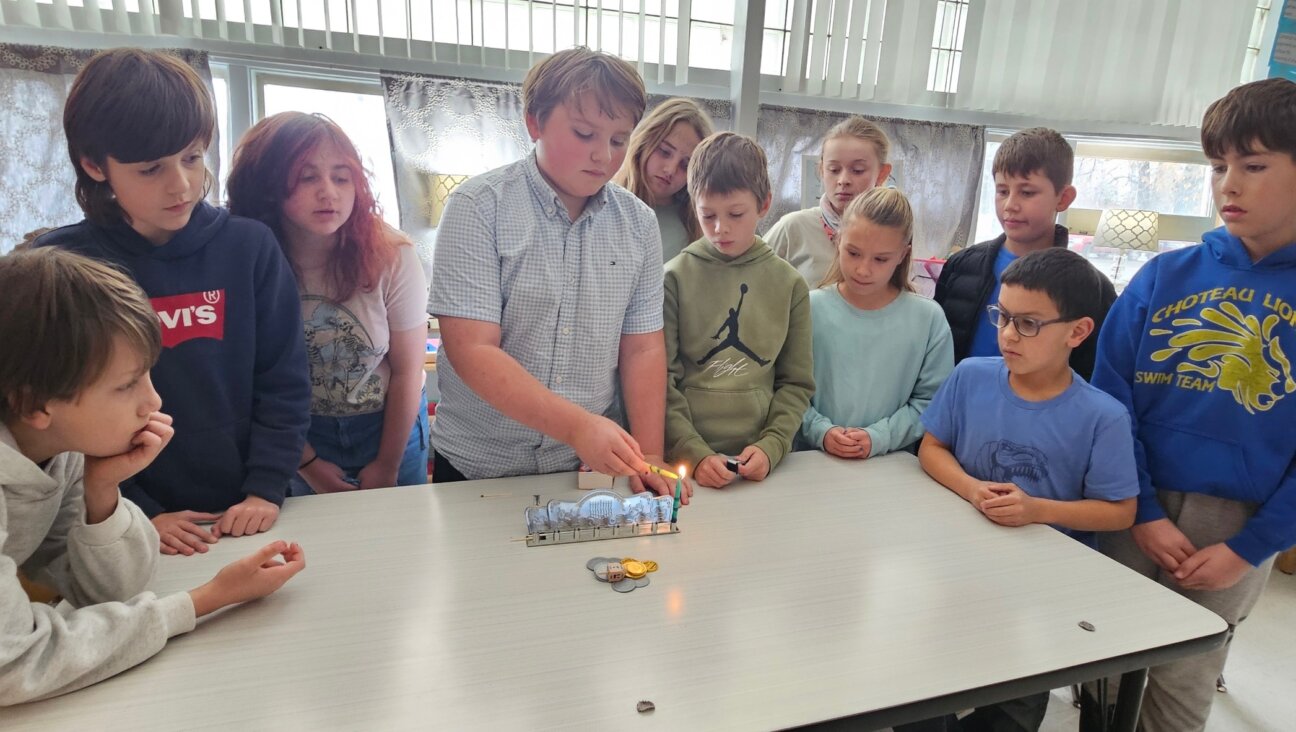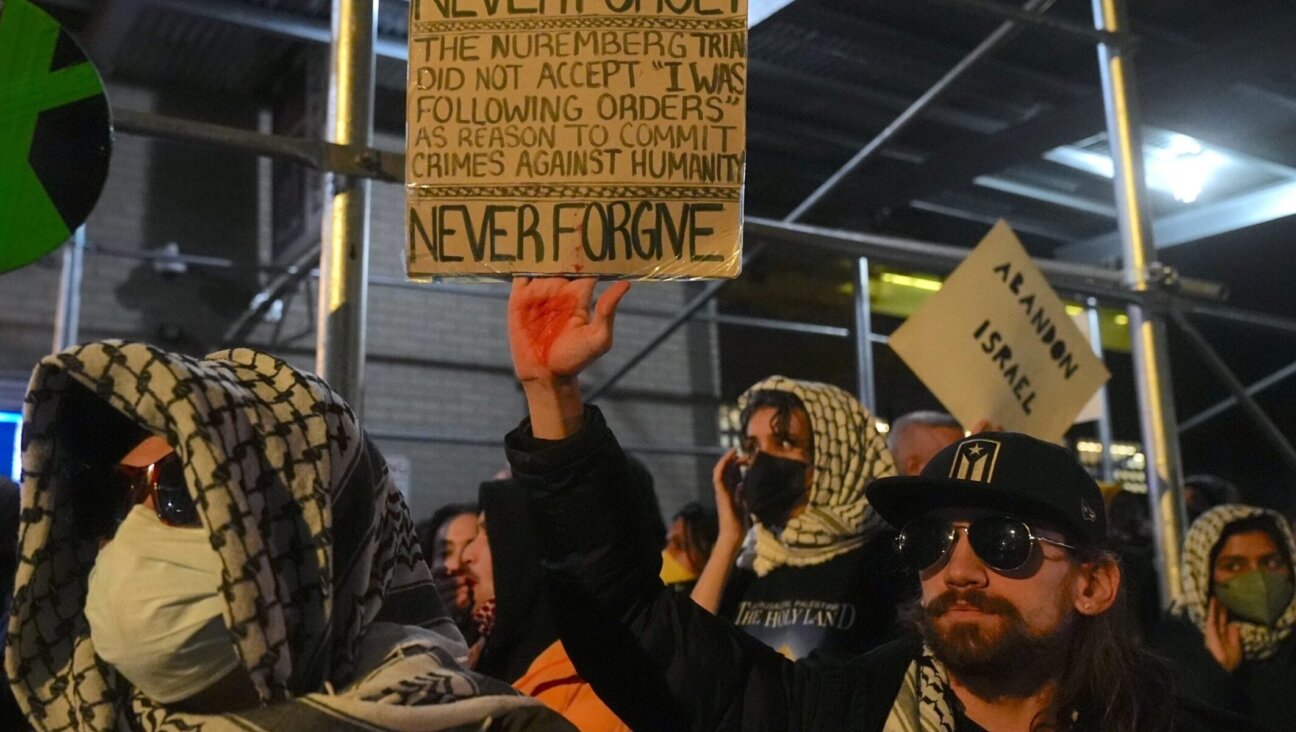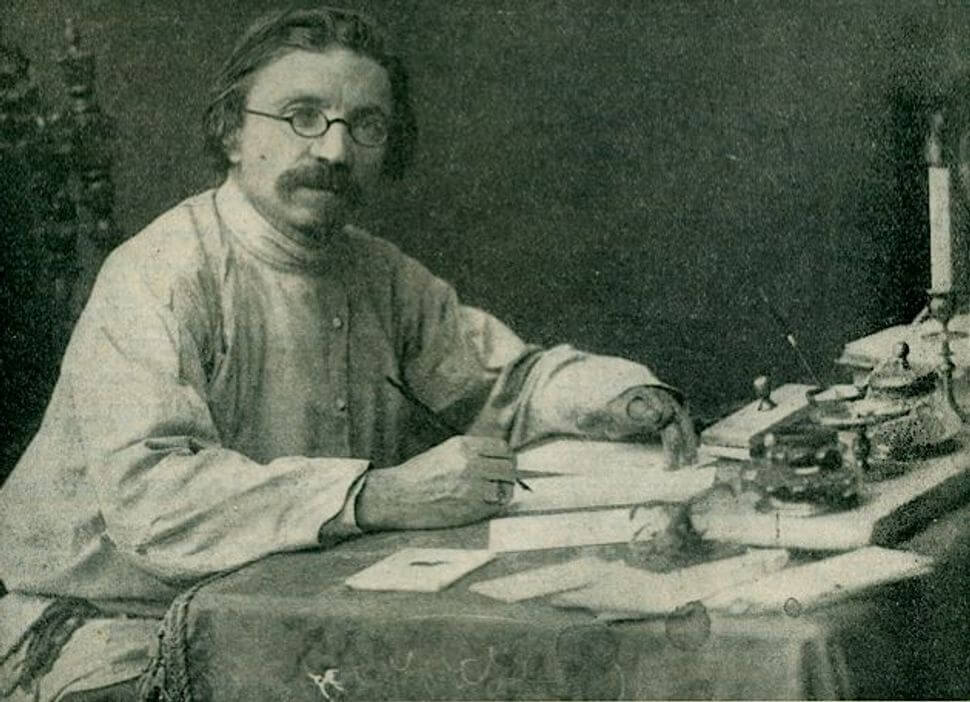IN OTHER WORDS…
French Gentleman’s Agreement: In May 2001, David De Rothschild, scion of the French branch of the family banking dynasty, told an Israeli newspaper that despite reports to the contrary, he did not feel that France was drowning in a wave of antisemitic acts.
“Within hours of its publication, his comment would rocket through e-mails in the working-class areas of Paris and be talked about in catastrophic terms, inflaming an oddball activist cop who had taken the plight of France’s Jews as his mission,” Marie Brenner writes in the June issue of Vanity Fair. “It was but one small piece of a dilemma that would grow imperceptibly into a cataclysm as America and France came to a stunning break in their relationship on the eve of the U.S.-led war with Iraq.”
Brenner trails the cop, a Jewish Algerian immigrant named Sammy Ghozlan, into the banlieues, the working class suburbs on the outskirts of Paris. The Sephardic Ghozlan, who conducts two in-demand “Vegas-style Hasidic” bands on the French bar mitzvah and wedding circuits, reveals to Brenner the darker, sinister part of France’s “odd, split-screen reality, a double narrative, two worlds of Paris, rarely colliding, trying to come to terms with a potential disaster.”
The French establishment, she writes, had built a “moat full of alligators” around the subject of the more than 1,000 attacks on Jews since 2001, and “mainstream French Jews do not make waves.” “It was impossible not to think I had somehow gone back in time to a world captured very well by Laura Hobson in her 1946 best-seller, ‘Gentleman’s Agreement,’ where the word ‘Jewish’ was said in whispers.”
Ashkenazic Jews in central Paris, such as Rothschild — whose family “contributes a significant amount of money to fund a myriad of budget requests” of communal organizations — assured Brenner: “This is not Vichy.”
“Nothing to be alarmed about,” Brenner writes of their thinking. “The attacks were happening out there, as if that were Iceland, far away from the three-star restaurants and the Matisse-Picasso show at the Grand Palais.
“‘Out there’ is, in fact, 10 Métro stops from the Place de la Concorde,” she writes. “It is a territory of class identification, behind a Maginot Line of French snobbism and disconnection, a Gallic sense of the insider and the other.”
In the “lawless areas” of Paris’s working-class suburbs, Brenner reports, the police often turn a blind eye, and the media a deaf ear, to the plight of lower-middle-class Sephardic Jews. Into the law-enforcement void stepped Ghozlan, who became a one-man crime agency. He eventually crossed the socioeconomic divide to team with Shimon Samuels, a British- and Israeli-educated political scientist and longtime director of the Simon Wiesenthal Center’s Paris office.
The pair eventually succeeded in opening politicians’ eyes — particularly those of the interior minister, Nicolas Sarkozy — to the rising number of antisemitic acts in France. In April Ghozlan and Samuels decided to open an office a few blocks from the Arc de Triomphe, while continuing to maintain a hotline in the banlieues for victims of antisemitic acts.
Now that they have the attention of the establishment in central Paris, Ghozlan and Samuels are forging a common French Jewish narrative, one cognizant of the threat to the world’s third-largest Jewish community — and to the birthplace of the democratic ideals that America is now seeking to spread.
“If France accepted a role in the coming Middle East war,” Samuels warned Vanity Fair’s Brenner before the outbreak of hostilities in Iraq, “it would mean that the attacks that had been limited to the banlieues could escalate to bombs going off in supermarkets all over France.”















